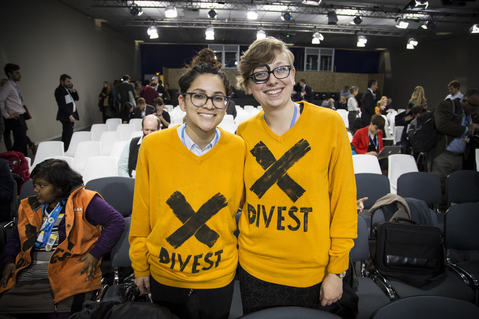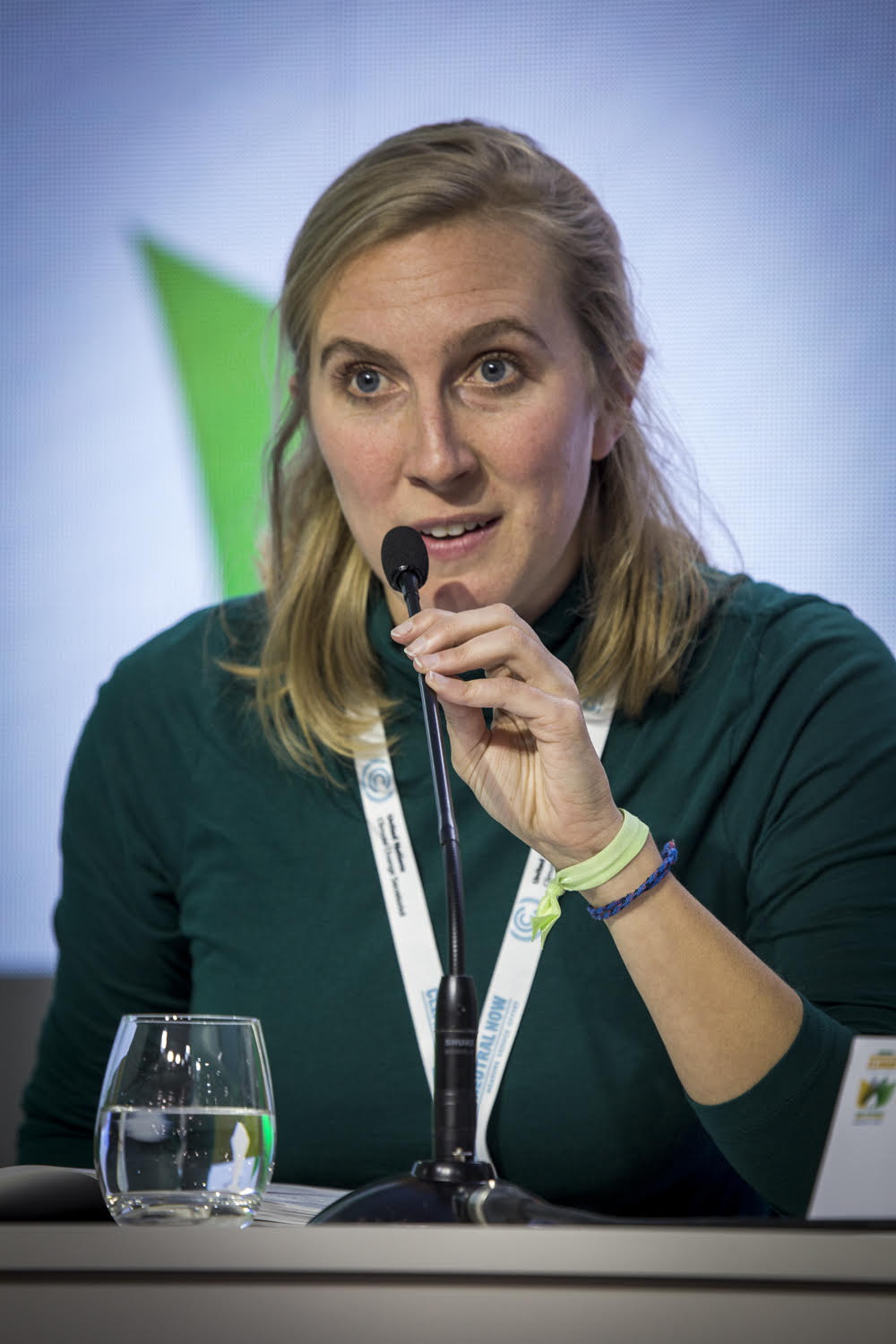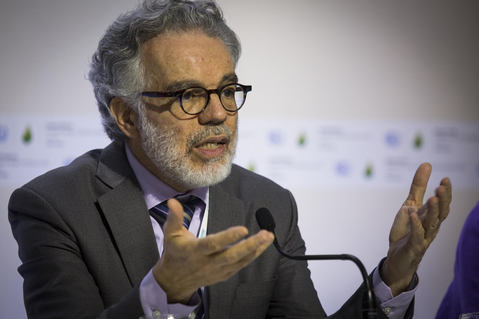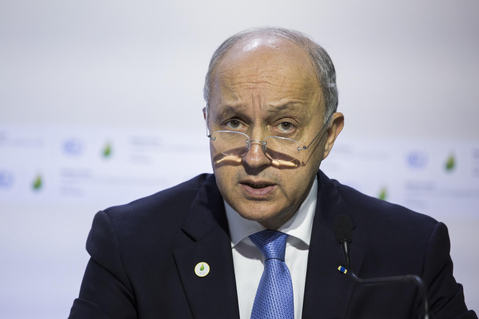The Paris Project: Day 3
Climate-Inspired Divestment and Health Concerns Win the Day

There was a big, bold, and profoundly telling message coming out of Le Bourget conference center today, and it had nothing to do with the ongoing United Nations climate negotiations transpiring inside. It came in the form of an announcement from U.S.-based grassroots climate activist group 350.org in an eye-catching declaration about the current state of the relationship between high finance and the fossil fuel industry.

Specifically, the group announced that, as of this morning, they had helped broker the divestment of some 500-plus institutions from the coal, oil, and gas industries, a move that represents over $3.4 trillion in investment assets consciously opting out of the fossil fuel game. “A growing number of investors representing a growing number of capitol do not want to be a part of that industry any longer,” summed up 350.org Executive Director Mary Boeve, “We are seeing a real surge of commitments [to divestment] right now. It is an exciting time.”

Taken in the context of the United Nation’s Climate Conference, the news that large investment entities, both public and private, are moving away from the historically cash-flush fossil fuel industry is a major boon for those hoping for an effective climate deal by the end of next week. In order for a potential Paris agreement to actually achieve its stated goal of keeping global warming at or below 2 degrees Celsius by the close of this century, it is believed that roughly 60-80 percent of the fossil fuels currently still in the ground need to stay there.
The fact that so much money is now choosing to stay away from subsidizing those extraction efforts is critical. Even more telling, though, is the fact that the motivation behind these divestment pledges is no longer merely a moral choice in the name of planet Earth. It has become a smart financial move as the coal industry nosedives and all fossil fuel sectors face a very uncertain regulatory future. “Divestment is nothing to be proud of,” explained Jacqueline Délia Brémond, the co-founder and co-chair of the Fondation Ensemble — a well-funded, private Earth-conscious organization that supports a variety of efforts around the world — “It has simply become a logical move.”
Driving home Délia Brémond’s point is the fact that divestment efforts spearheaded by 350.org and its partner Divest-Invest have grown from $50 billion and 181 organizations just 14 months ago to current levels. The types of people divesting (albeit to a spectrum of varying degrees) range from international cities like Bordeaux, Oslo, and Melbourne to schools like the University of California and the London School of Economics to private outfits like Europe’s largest insurance company Allianz.
Explaining his foundation’s choice to part ways with one of the largest and longest running fossil fuel investment empires and put their weight behind renewables, President of the Rockefeller Brothers Fund Stephen Heintz said on Wednesday, “There is a moral imperative to save the planet, and to do so we need to end the fossil fuel era now. Finally there is real economic incentive to do so.”
Even California Senate President and representative from the 24th District Kevin de León travelled to Paris to get in on the divestment messaging. Describing the economic impacts of our state’s conscious choice to have its pension plan leave coal behind, de León offered, “We have successfully delinked and decoupled our gross domestic product from coal…We have proven in real life that you can do it.”
The news from the divestment camp came on the heels of a World Health Organization (WHO) presentation on the connection between climate change and health issues the world over. While the intersection is a multi-faceted one, the biggest link is, once again, coal. According to the WHO, there are 7 million deaths annually due to air pollution, a number on par with deaths from smoking and due by and large to coal-fired power.

It is for this reason, and others like the spread of malaria, malnutrition (due to drought), and the displacement of peoples by increased storm activity and sea level rise, that WHO member Dr. Diarmid Campbell-Lendrum stated as a matter of fact to a crowd full of journalists, “Climate change represents an absolutely fundamental threat to world health.” A recent report from the organization — what the doctor called a “modest estimate” — predicts that climate change alone will be responsible for an additional quarter million deaths each year by 2030 thanks to things like heat stress, under-nutrition, and diarrhoeal disease.
So what of the actual negotiations on this, the mid-point of week one? Well, for the first time since negotiations started, COP21 President and French Minister of Foreign Affairs Laurent Fabius addressed the media this afternoon. While his primary message was one of positivity, saying the conference’s “general trend is a positive and impressive one,” he was also honest about the time crunch already putting the squeeze on negotiators and threatening a possible successful agreement. “We must speed up the process…Compromises and solutions must be found as fast as possible,” stressed Fabius. “We are expected to succeed. We must succeed. And we must not lose sight of that in our work.”

Thursday will be a big day in regard to understanding just how much or how little progress is actually being made with the draft text and various negotiations, as teams work towards Fabius’ request for a solid and near complete draft by Saturday. Many of the official observer groups in attendance wait until Thursday to start offering their interpretations of what exactly is happening behind closed doors and, when they do, media types will begin to get their eyes on more and more of the actual working document. The jet lag is finally starting to wear off for us here in the trenches of the Paris Project. Here’s to hoping the folks doing the important work are feeling the same way. Stay tuned…



